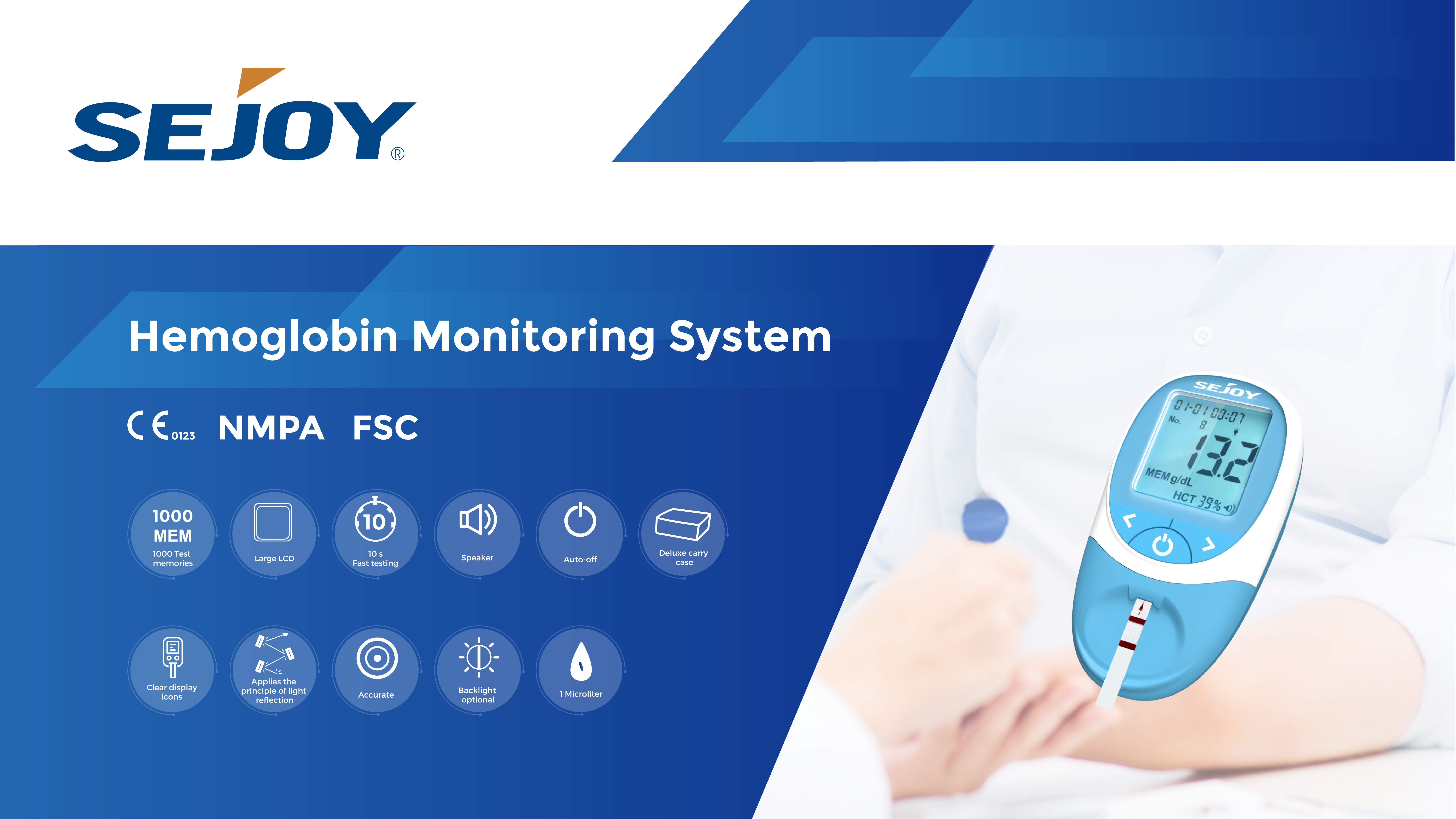Hemoglobin, as the main component of red blood cells, is responsible for transporting oxygen and carbon dioxide in the body, and its content directly affects the health status of the human body. Therefore, daily monitoring of hemoglobin is particularly important as it can help us timely understand the nutritional and health status of the body, and take corresponding measures for prevention and treatment.
Timely detection of anemia issues
The main function of hemoglobin is to carry oxygen, and if its content is too low, it may lead to anemia. Anemia is a common health problem characterized by symptoms such as pale complexion, dizziness, fatigue, palpitations, and shortness of breath. By daily monitoring of hemoglobin levels, anemia problems can be detected in a timely manner, and measures such as dietary adjustments or medication treatment can be taken in a timely manner to avoid worsening of the condition.
Evaluate nutritional status
The content of hemoglobin is closely related to nutritional status. By monitoring hemoglobin levels, an individual’s nutritional intake can be indirectly evaluated. If the hemoglobin content is low, it may indicate that the individual has malnutrition problems and needs to increase the intake of foods rich in iron, protein and other nutrients.
Monitoring the effectiveness of disease treatment
For certain diseases, such as chronic diseases, tumors, etc., hemoglobin monitoring can serve as an observation indicator of disease treatment effectiveness. As the condition improves, hemoglobin levels usually gradually return to normal levels. Therefore, by monitoring changes in hemoglobin, the treatment status of the disease can be understood, providing a basis for doctors to adjust treatment plans.
Prevent potential risks
Daily monitoring of hemoglobin can help prevent potential health risks. For example, pregnant women are prone to anemia and other issues during pregnancy. Regular hemoglobin monitoring can detect and address these issues in a timely manner, ensuring the health of both mother and baby. In addition, for specific populations such as athletes, monitoring hemoglobin can also help prevent sports injuries such as sports anemia.
In summary, daily monitoring of hemoglobin is of great significance for maintaining human health. By promptly identifying anemia issues, assessing nutritional status, monitoring disease treatment outcomes, and preventing potential risks, we can better protect our physical health. Therefore, it is recommended that everyone regularly monitor hemoglobin, pay attention to the signals emitted by the body, and take timely measures to maintain health.
Post time: Jun-03-2024


